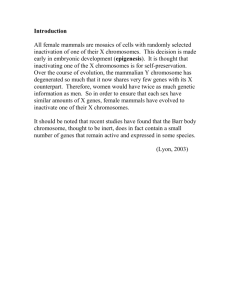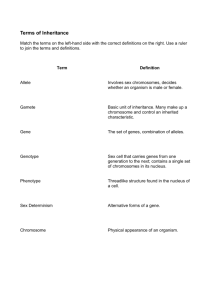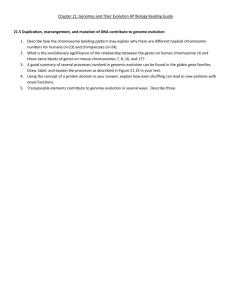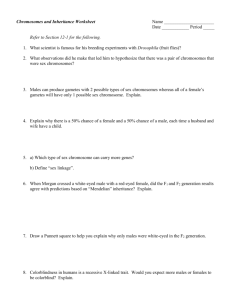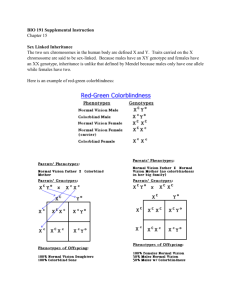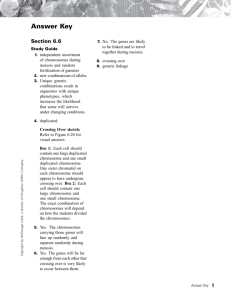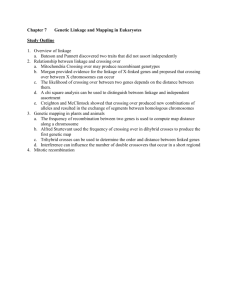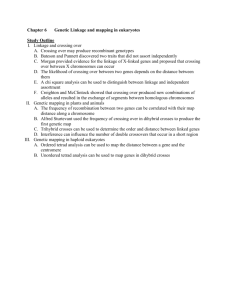Linked and Sex-linked genes
advertisement
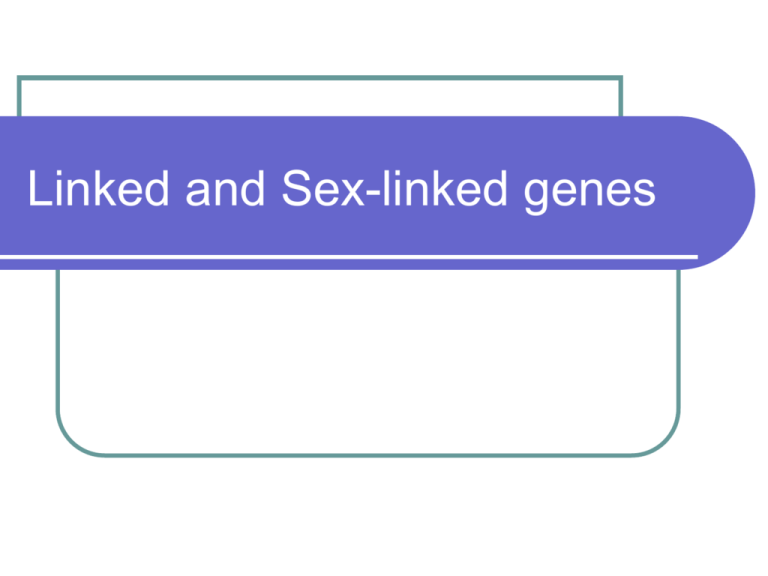
Linked and Sex-linked genes Linkage and sex determination What determines gender? What is the key feature of sex linked inheritance? Record for humans and 2 other examples Males are more affected What is a definition and diagram for sex linked genes? Any gene carried on the non-homologous part of the X chromosome is called sex-linked. Sex linkage Any gene carried on the nonhomologous part of the X chromosome is called sex-linked The Y chromosome is genetically empty for that characteristic. Faulty genes on X will show up in males because Y cannot mask effect Symbols written above X and Y symbols Red-green colour blindness Allele common, so some females affected. Cross a woman with normal vision (but her father was colour blind) with a colour blind man. Give the genotypes and phenotypes of the children. Haemophilia Blood fails to clot 1/6000-10000 males Royal disease – Queen Victoria Examine pedigree chart pg 116 Muscular dystrophy Muscular dystrophies are characterized by progressive skeletal muscle weakness, defects in muscle proteins, and the death of muscle cells and tissue. Barr bodies What are they? Use page 117 to explain What can this lead to? Define varigation Tortoise-shell cats Only females can be tortoise shell. Two alleles B = black and O = orange Males can be ? Females can be ? What is the result of a black male mating with an orange female? XXY is a male tortoise-shell Activities for practice Self check 118 – 121 2006 Exam Question Sex-influenced genes Traits not located on sex chromosomes have different appearances in males and females Influenced by presence of sex hormones Eg – pattern baldness in humans - bulls and milk production - horns in sheep Linkage activity Create some chromosomes and follow what the teacher says…… Linkage Humans have 23 pairs of chromosomes and about 100,000 genes therefore many genes are on the same chromosome Genes on the same chromosome are linked genes Linked genes cannot segregate independently, they move together during meiosis so inherited together Results in less genetic variation in gametes than when independent assortment takes place Show how these cells can make gametes: A B a b What ratio is given when this individual is test crossed? 1:1 is the ratio for linkage with no crossing over Linkage with cross over Create chiasma by performing crossing over and recombination with your chromosomes Now what gametes can form? Recombination This is the exchange of alleles between homologous chromosomes as a result of crossing over It increases genetic variation by creating new combinations of alleles to be passed on in gametes Offspring formed from these gametes show new combinations of characteristics and are known as RECOMBINANTS Perform a backcross A B A b a B a b a b % recombinants or non recombinants 45 % Nonrecomb. This gives a ratio 9:1:1:9 which is almost a 1:1 ratio with a ‘little bit over’ means that it is linkage with crossing over Cross over value (COV) This is the percentage of offspring which show separation of the genes COV = number of recombinants total number of offspring x 100% Copy example from pg 126 What happens the closer genes are? Chromosome mapping This is the relative position of genes on a chromosome The further the genes are apart, the more likely they are to break and rejoin Mapping activities Self check pg 128 Handout ‘Q5 Crossing over’ Handout ‘Q32 part c’
